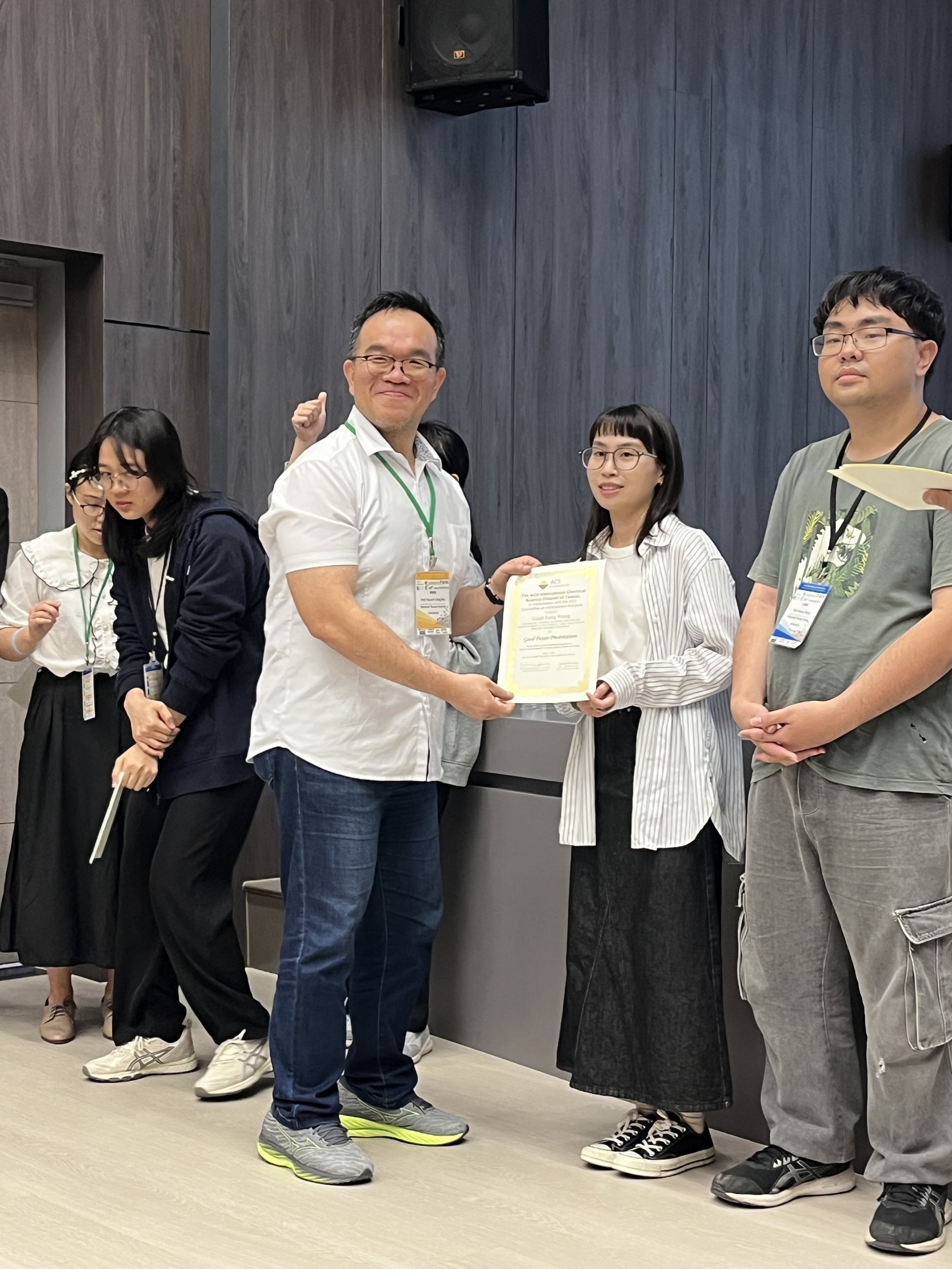Celebrating Our Mentor: Prof. Min-Yeh Tsai Named CCU Young Scholar! 賀蔡旻燁助理教授榮獲『中正青年學者』獎!!
We’re thrilled to share that MYTLab’s very own leader, Prof. Min-Yeh Tsai, has been honored with the prestigious “CCU Young Scholar Award”!
This award recognizes rising academic stars at National Chung Cheng University who demonstrate outstanding achievements in research, teaching, and service. Within just three years of joining CCU, Prof. Tsai has established a vibrant research program at the intersection of theoretical chemistry, molecular biophysics, and computational biology—illuminating mechanisms behind protein aggregation and gene regulation one simulation at a time.
Whether it’s decoding the complex dance of protein-DNA interactions or training the next generation of scientists, Prof. Tsai leads with vision, rigor, and heart.
“This award isn’t just mine—it’s a reflection of the incredible students, collaborators, and family that make the journey worthwhile,” says Prof. Tsai.
MYT received the award from the CCU President Prof. S.-J. Tsai.
Group photo with fellow awardees and CCU representatives
Group photo with MYTLab members!
Photo with the department chair Prof. S.-C. Wang!
Congratulations!! MYTLab MS students won poster/oral awards in 8th ACS Taiwan Chapter Student Conference. 恭喜碩士班學生獲得ACS Taiwan Chapter 學生研討會壁報/口頭演說獎!!
Award pictures
承翰 Apple 獲得口頭報告獎(Good)!
冠方(Debby )獲得壁報佳作(Good)!
葳翔(Wayne)獲得壁報佳作(Good)!
奕廷(Dyland)獲得壁報佳作(Good)!
宏毅(Sam)獲得壁報傑出獎(Outstanding)!
Group pictures
Poster/oral competition
宏毅(Sam)專注解說的神情!
Principal investigator MYT's project selected for EMSL Large-Scale Research Award!! 本實驗室主持人蔡旻燁獲得美國西北太平洋國家實驗室-環境分子科學實驗室-2024大規模研究資助獎!!
“Understanding PTM Impact on Microbial Amyloid Proteins Through Molecular Simulation
This project aims to delve into the molecular mechanisms of microbial amyloid proteins, particularly focusing on the role of post-translational modifications (PTMs) in these processes. Applying a comprehensive approach, researchers will use a transferable coarse-grained biomolecular simulation package to examine protein–protein interaction properties at interfaces. These interactions are pivotal in various microbial functions such as toxicity, signaling, and biofilm formation in plant-associated microbial communities. Researchers will integrate EMSL’s Python-based workflow with the Associative-memory, Water-mediated, Structure, and Energy Model (AWSEM) to predict protein structures and folding patterns for an intuitive analysis, especially for PTM-specific regulation. ”




















